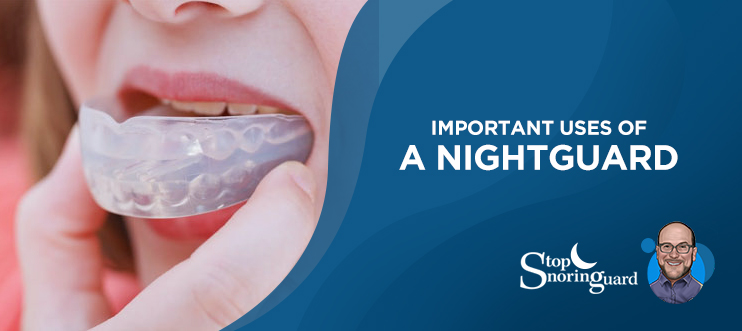Do you have TMJ dysfunction? Does your jaw muscle feel sore after waking up? Do you experience teeth grinding or clenching?
If you answered yes to these questions, then it must be time to use a nightguard.
A nightguard or night guard comes as a soft night guard for TMJ with the shape of a horseshoe and is prescribed to be worn over the teeth while sleeping.
People who have problems with excessive teeth grinding and clenching can benefits of wearing a nightguard. Another important use of a sleep guard is for treating the symptoms of TMJ or Tempro-Mandibular jaw dysfunction.
How would you know if you are suffering from TMD?
There are symptoms indicating reasonable causes to use a nightguard because of TMJ dysfunction, they include jaw joint pain (TMJ pain), ear pain, dizziness, facial pain, jaw muscle pain, neck pain, difficulty sleeping, jaw clicking, headache, sensitive, difficulty when opening or closing the mouth, and worn, sharp, short, flat teeth.
Teeth Grinding and Clenching
As for teeth grinding and clenching, pain is experienced because of emotional stress, sleep breathing disorders, or a bad bite.
Emotional problems are reasons why people find it hard to have a sound sleep. The mind processes the worrisome events that occurred during the day and these cause muscular contractions, spasms and teeth clenching.
Teeth clenching may also result in difficulty of breathing, snoring and sleep apnea as the body may attempt to enhance breathing. Teeth clenching activates a muscle in the jaw, the tensor veli palatine which increases airway size
The bite location and position of the jaw can also affect teeth grinding. If it is not physiologically correct or improperly positioned, the body attempts to correct it during sleep by self-adjusting. This event results in teeth grinding. You can use night guard for jaw clenching to help you ease with the pain.
How Pain Occurs
The constant grinding causes jaw muscles as well as supporting joints and ligaments to fatigue. There are chemicals that causes pain that may accumulate within the fatigued muscles. The extreme muscular activity becomes the reason why supporting ligaments, tendons and jaw joint components are stressed causing pain and possible permanent joint damage. The teeth may wear away to the point that the nerve is exposed and become more sensitive as the jaw muscles stress the teeth in their bony sockets.
How Nightguard Works
A nightguard for snoring and grinding works to prevent the pain caused by TMJ dysfunction, teeth clenching, and teeth grinding. It helps stop full jaw muscle contraction by inhibiting maximum force as it prevents the jaw from being fully closed due to the thickness of the nightguard. The nightguard’s thickness is also proven effective to relieve pain in the jaw muscle and also helps eliminate further teeth damage and wear.
Nightguard for snoring and grinding also works to avoid pain caused by a bad bite. When properly fitted, the nightguard can realign the jaw to a more physiological position You can use night guard for jaw clenching to help you ease with the pain. It also helps prevent teeth grinding.
As for sleep breathing disorders including snoring and sleep apnea, snoring mouthguard or anti snore mouthpiece have been used to treat these anomalies. These mouthpieces may also stop the grinding.

Leave a Reply